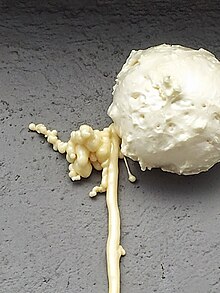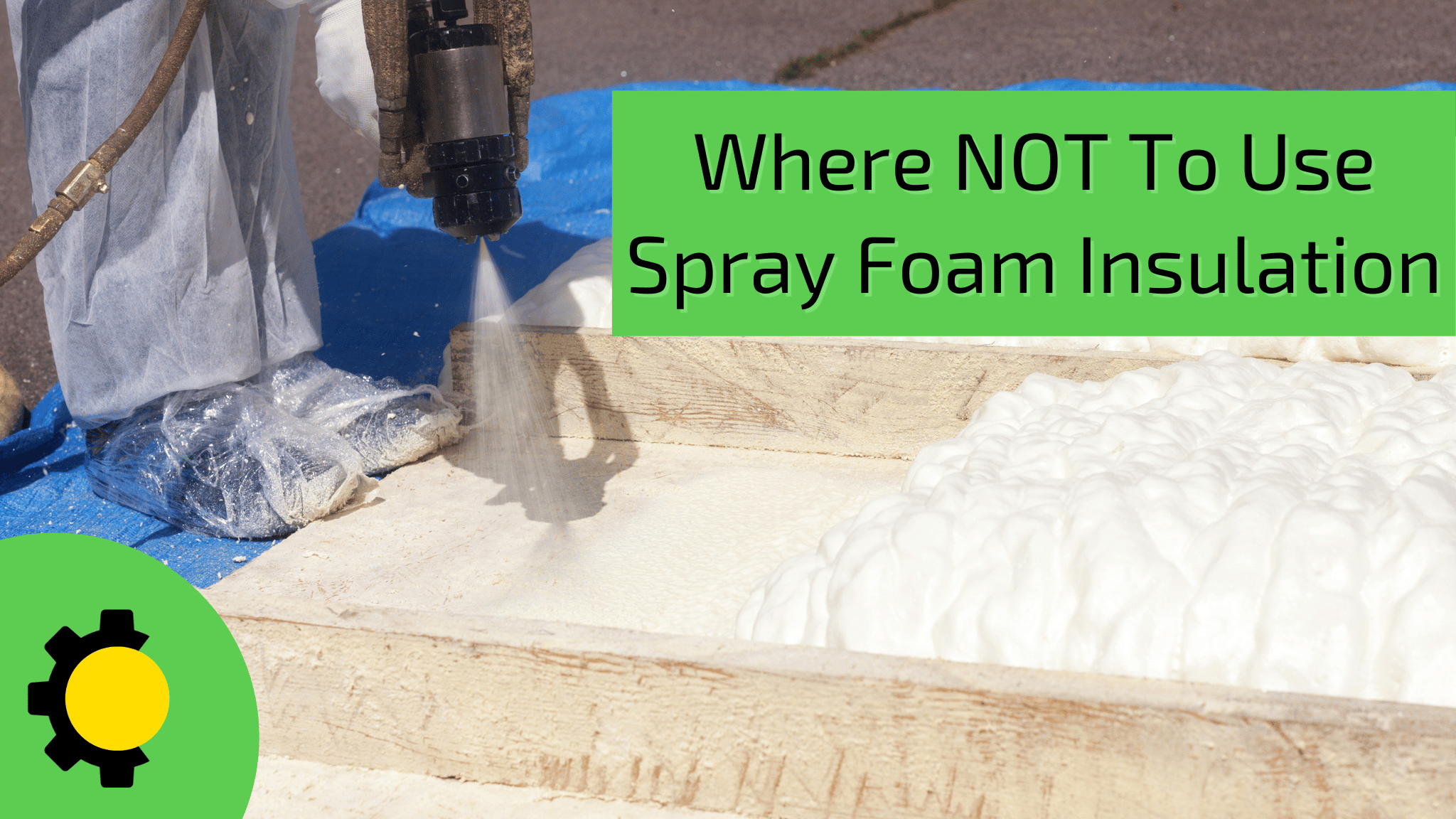How Spray Foam Can Enhance Power Efficiency in Your Home
How Spray Foam Can Enhance Power Efficiency in Your Home
Blog Article
Spray Foam: The Ultimate Solution for Air Sealing and Insulation
Spray foam insulation has become a leading service for reliable air securing and thermal insulation, offering an one-of-a-kind mix of homes that set it aside from standard approaches. Its ability to increase and fill spaces makes it particularly effective in protecting against air leakage, which can significantly influence power performance. Understanding the full extent of its benefits, installation processes, and contrasts with various other insulation types is important for making educated decisions. As we explore these aspects, the effects for both new buildings and retrofits end up being progressively significant. What factors should affect your choice?
What Is Spray Foam?
Spray foam is a versatile insulation material that incorporates the principles of air securing and thermal resistance to improve power effectiveness in structures. Composed primarily of polyurethane or various other comparable compounds, spray foam is applied as a liquid that broadens upon contact with surface areas, creating a strong, constant layer of insulation. This distinct building enables it to fill spaces, cracks, and spaces that conventional insulation products may forget, supplying an exceptional air seal.
There are 2 main sorts of spray foam: open-cell and closed-cell. Open-cell spray foam is lighter and much more adaptable, providing superb sound absorption and a reduced R-value per inch - Spray Foam. On the other hand, closed-cell spray foam is denser, supplying a higher R-value, wetness resistance, and included structural stability to constructing elements
The application process usually entails customized equipment, making sure a smooth application that follows various substratums, including wood, metal, and concrete. This flexibility makes spray foam suitable for both new constructions and retrofitting existing structures. Its ability to produce a closed barrier substantially adds to lowering energy consumption and improving indoor air high quality, thus making it a favored selection among home builders and house owners alike.
Benefits of Spray Foam Insulation
One of one of the most considerable advantages of spray foam insulation is its extraordinary ability to develop a constant air barrier, which effectively decreases energy loss. Unlike traditional insulation products, spray foam broadens to load voids and fractures, making sure that air leakage is significantly lowered. This characteristic not only boosts power efficiency yet additionally brings about reduce utility bills over time.
Additionally, spray foam insulation gives remarkable thermal resistance, contributing to a much more stable interior atmosphere. Its high R-value per inch enables effective insulation in restricted spaces, making it excellent for attic rooms, walls, and crawl spaces. Furthermore, the moisture-resistant properties of spray foam help prevent mold and mildew and mildew development, promoting healthier living conditions.
An additional essential benefit of spray foam insulation is its sound-dampening high qualities (Spray Foam). It properly reduces noise transmission in between rooms, creating a quieter and much more comfy home setting. The resilience of spray foam likewise sticks out, as it does not droop or resolve with time, maintaining its performance throughout its lifespan
How Spray Foam Works
Comprehending just how spray foam insulation functions is important for valuing its performance in air securing and thermal resistance. Spray foam insulation includes two main parts: isocyanate and polyol resin. When these elements are mixed, they go through a chemical response that causes the material to expand rapidly, producing a dense foam that fills tooth cavities, spaces, and cracks.
As the foam expands, it abides by surfaces, forming an impermeable seal that significantly lowers air infiltration. This characteristic makes spray foam insulation very efficient at stopping drafts and moisture infiltration, which can cause energy loss and damages in time. In addition, the closed-cell variation of spray foam offers superior thermal resistance as a result of its stiff framework, successfully minimizing warm transfer.
The unique find out this here residential or commercial properties of spray foam permit it to adapt irregular surface areas, guaranteeing comprehensive insurance coverage and a seamless barrier. Consequently, spray foam insulation not only enhances energy efficiency yet also adds to enhanced indoor air quality by lowering the buildup of irritants and pollutants. Inevitably, comprehending the mechanics behind spray foam emphasizes its function as a superior selection for insulation and air sealing in both business and domestic applications.
Setup Refine Introduction

Prior to setup, the room should be adequately cleaned up and prepped, making certain that surface areas are cost-free from dirt, dampness, and particles. This action is critical since impurities can jeopardize bond and general performance. As soon as the area is prepared, the application includes mixing both parts of the spray foam, which increases upon call and fills up spaces effectively.
Trained experts ought to perform the setup, making use of customized equipment to guarantee uniform protection and ideal thickness. Security safety measures, useful content consisting of wearing protective equipment and guaranteeing appropriate ventilation, are essential throughout this process. After application, the foam typically cures promptly, creating a strong barrier that boosts power efficiency.
Contrasting Spray Foam to Traditional Insulation
When evaluating insulation choices, spray foam insulation stands out in contrast to conventional products such as fiberglass and cellulose. Unlike fiberglass and cellulose, which can enable air seepage, spray foam broadens upon application, loading gaps and holes to develop a closed seal.
In addition, spray foam provides a higher R-value per inch than standard insulation types, supplying more reliable thermal resistance in a thinner profile. This particular is especially beneficial in areas with minimal tooth cavity deepness. Spray foam is resistant to dampness and mold and mildew growth, which can be a substantial worry with cellulose and fiberglass, especially in damp environments.
Nevertheless, spray foam insulation commonly lugs a higher in advance price than its standard equivalents. Home owners need to evaluate this first investment against long-lasting power financial savings and performance advantages. Ultimately, while both insulation types serve their function, spray foam emerges as a more innovative solution for modern-day insulation requirements, especially in terms of air sealing and thermal performance.

Final Thought
In recap, spray foam insulation stands for an try these out extremely effective option for achieving optimum air securing and thermal resistance. Its one-of-a-kind buildings, consisting of moisture resistance and noise dampening, make it suitable for different applications in both brand-new constructions and retrofitting projects (Spray Foam). The initial expenses might be greater compared to standard insulation materials, the long-lasting advantages, such as substantial energy financial savings and boosted indoor air top quality, warrant the investment and underscore its worth in contemporary building techniques.
Spray foam insulation has actually emerged as a leading service for effective air sealing and thermal insulation, providing an one-of-a-kind combination of homes that establish it apart from conventional techniques.Spray foam is a flexible insulation product that incorporates the principles of air sealing and thermal resistance to enhance power effectiveness in buildings.When assessing insulation options, spray foam insulation stands out in comparison to standard products such as fiberglass and cellulose. Eventually, while both insulation kinds offer their purpose, spray foam arises as an extra innovative remedy for modern-day insulation demands, especially in terms of air sealing and thermal efficiency.
In recap, spray foam insulation stands for an extremely efficient remedy for achieving optimal air securing and thermal resistance.
Report this page